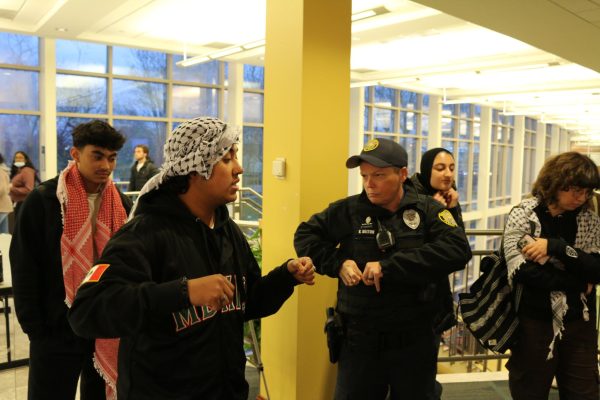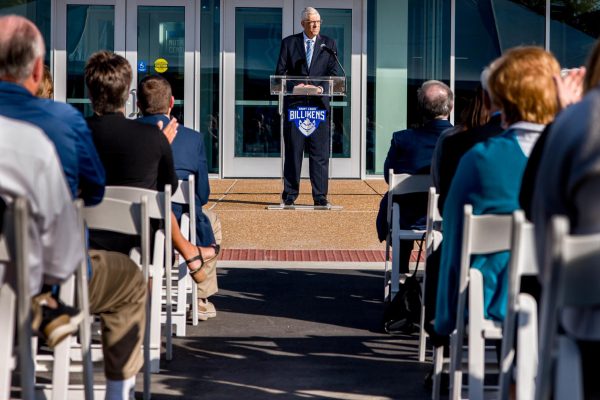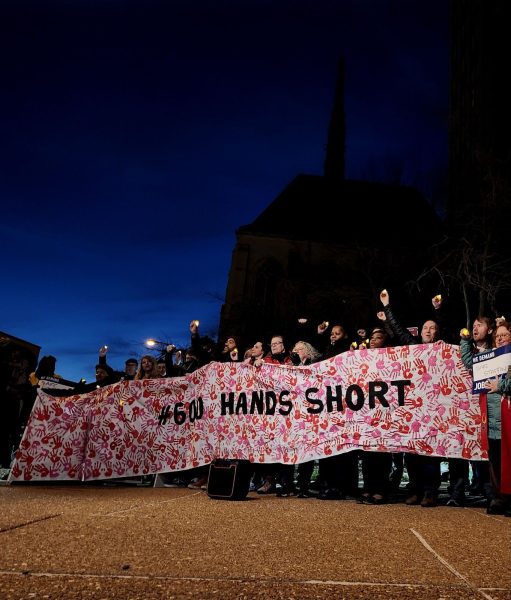Amidst APR Program Cuts, Some Programs To Continue
With the recent release of the Academic Financial Planning and Portfolio Review (APR) final decisions, it has been announced that some SLU programs have found ways to remain open and continue to serve students on campus. In consultation with the Provost and the APR committee, a number of faculty were able to reach agreements to keep programs in place at SLU.
To recap, in June 2019, the APR process was initiated. According to the APR website, the APR committee was created to “represent the University academic community [and] to analyze and make recommendations to the Provost about the size and scope of SLU’s portfolio of academic programs.” The seventeen members of the APR committee constitute faculty representatives from every SLU college and school as well as Dean, Provost Office and Trustee representatives.
After a two year evaluation period, 40 programs were recommended for closure in the initial APR committee rulings. The programs ranged in scale from undergraduate minor and certificate programs to doctoral programs, affecting 260 enrolled students in total. Due to current deliberations, the APR process is still ongoing, and this number is likely to fluctuate.
The programs to be cut fall within the College of Arts and Sciences and Doisy College of Health Sciences are housed in the School of Social Work, the School of Public Health and Social Justice, the School for Professional Studies and the School of Education. The programs include Biosecurity and Disaster Preparedness, Creative and Professional Writing, Globalization and Technology, Latin American Studies, Medieval Studies and more. It is important to note that students can still major or minor in any programs scheduled to be cut for the Fall 2021 semester, and that any current students in those programs will be able to complete their degree.
The goal of the APR committee is to examine the breadth of all course offerings at SLU and make program recommendations in the interest of SLU’s educational mission and fiscal sustainability. Data on all SLU programs was collected and compiled on the APR website. The student interest, completion rates and financial position of each program were particular metrics of importance. However, select programs were exempt from the later stages of review for a variety of reasons. The APR website stipulated that courses had to meet at least one of the criteria to be recommended for retention. The criteria included meeting enrollment, retention and matriculation benchmarks, complementing existing SLU majors, generating sufficient net tuition revenue (NTR) per student per credit hour taken or proving “essential to SLU’s Jesuit mission.”
Six programs that were marked to close in the latest stage of review have been able to continue offering courses in some capacity, suggesting alternative plans of reallocation or reorganization instead of closure. The American Studies major and minor programs are both remaining open through such an alternative proposal. American Studies Academic Department Chair and Associate Professor Emily Lutenski emphasized the importance of retaining the programs.
“To really robustly study American culture contributes to the overall mission that SLU embraces to interrogate questions of power, of identity, of activism and of diversity,” Lutenski said. You have to do that to understand the complexities of American culture. I think American Studies is one of the departments on campus that really thoroughly integrates those kinds of questions of societal importance into every class in its curriculum.”
According to Lutenski, the alternative proposal which was put forward by the faculty in the American Studies department focused on several factors, including the size of the department, its sustained growth despite curriculum obstacles, the excellence and achievement of its students and the societal contribution to St. Louis and other communities.
“We’re pleased that the administration has recognized the importance of our field, and the potential growth of our footprint, because overall we just want to contribute to undergraduate education,” Lutenski said.
The Women’s and Gender Studies Department also submitted an alternative proposal that was accepted by the Provost, deciding to pause enrollment for its Master’s degree program after the Fall 2021 semester.
“We feel that in order to really run a good quality, robust Master’s degree program in Women’s and Gender Studies, we need more resources,” Gretchen Arnold, Academic Department Chair and associate professor, said. “We need more faculty and more graduate assistantships so that we can support high quality graduate students.”
Conversations of pausing enrollment for the Women’s and Gender Studies Master’s degree program had occurred before the APR was underway, and Arnold said she had considered the idea of suspending the program in talks with the Dean of Arts and Sciences and the Provost. In suspending the Master’s program until more financial resources and faculty were available – while helping the students currently in the program graduate – it is thought the program will be able to reach its full potential. She believes the excellent quality of the department presents an opportunity for SLU to become a leader in the area of gender issues as a Jesuit university. “[Jesuit scholastics] are very interested in thinking about how gender, gender issues can be understood from a Jesuit perspective. And so, I believe that slowly, we could really be a center for this kind of thinking in the United States, but we cannot do it with the resources that we have right now. So we argued for keeping the Master’s degree program on the books.”
Your donation will support the student journalists of Saint Louis University. Your contribution will help us cover our annual website hosting costs.










